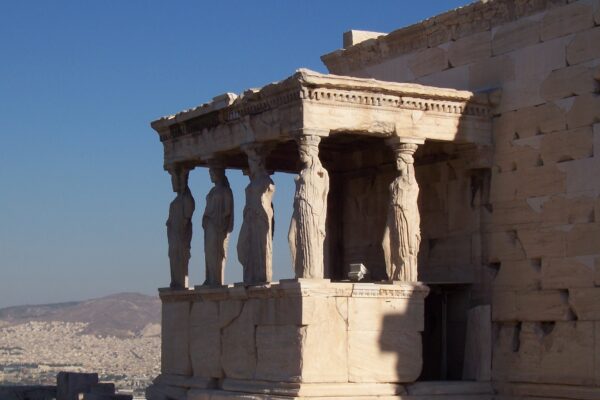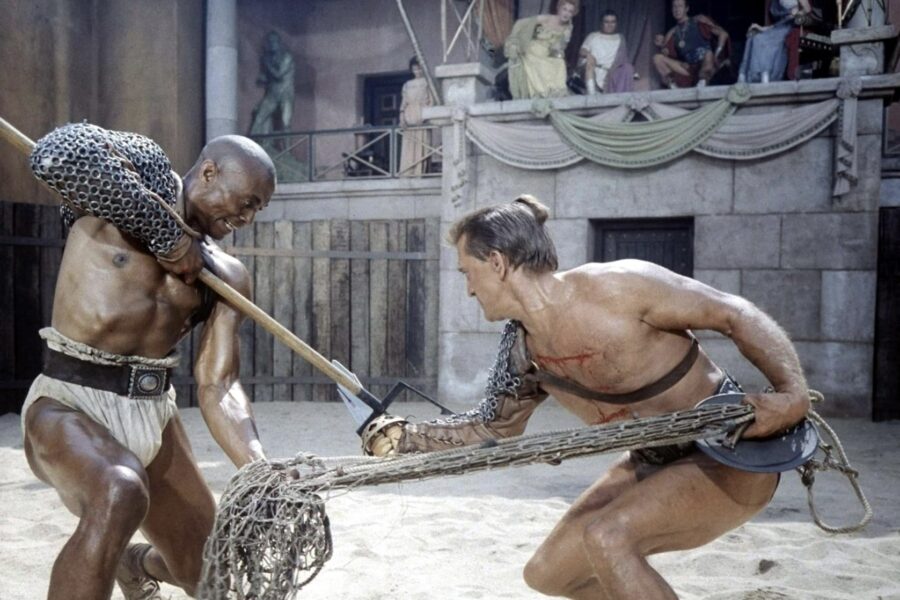
Sure, the Olympics are cool, but you could be watching whatever this is.
Episode 78: In which the Underworld Club for Architects gets seriously distracted by Spartacus and his gladiator rebellion adventures. As should we all.
This episode of Real Housewives of Hades (a Mt. Olympus spin-off) brought to you by the latest archaeological news on SmithsonianMagazine.com – and by CLAS-C 361 Ancient Roman Revolutions.
[SETTING: Underworld Club for Architects]
PHIDIAS, DESIGNER OF THE PARTHENON: Welcome, everyone! One of our Roman brethren, Vitruvius, has arranged a special presentation for us on an important recent discovery in Roman architecture. Vitruvius?
VITRUVIUS, ANCIENT ENGINEER AND ARCHITECTURE AUTHORITY: Thank you, Phidias. It’s a pleasure to be here. I’d like to start my presentation by introducing my co-presenter, Spartacus. As we shall see, he can provide critical insight on this discovery.
SPARTACUS, ANCIENT GLADIATOR AND REBELLION AUTHORITY: I am Spartacus!
VITRUVIUS: Um, yes, as I just said. Anyway, the mortals have rediscovered the wall that the Roman army built across the Italian Peninsula to entrap Spartacus and his gladiator army. That wall…
PHIDIAS: I’m sorry, did you just say “gladiator army?” Rome made an army of gladiators?
VITRUVIUS: Well, no. I suppose they were really more of a paramilitary force made up of escaped slaves, including gladiators. Spartacus was their leader. Anyway, the wall…
SPARTACUS: I am Spartacus!
VITRUVIUS: Right, that’s been established. I’m giving you full credit.

The Spartacus Nesting Dolls set did not sell well upon release.
PHIDIAS: So the Roman army surrounded this gladiator army with a wall?
VITRUVIUS: Yes! Well, no, not quite. The Roman army built the wall across the toe of the Italian peninsula, down in what they now call Reggio Calabria. They were trying to entrap Spartacus and his forces against the sea. So it was more in front of, rather than around, although Roman military architecture…
PHIDIAS: Spartacus started a rebellion at the toe of the Italian boot? That’s a terrible place to stage a rebellion. The Strait of Messina at his back are notoriously dangerous waters, haunted by monsters. Spartacus’ plan sounds poorly thought out.
SPARTACUS: I am Spartacus!
PHIDIAS: Apologies, I didn’t mean to offend.
VITRUVIUS: No, Spartacus started his rebellion up at Cuma, near the entrance to the Realm of the Dead we are all enjoying. He was actually quite a skilled tactician. After he and his initial followers escaped, they took shelter in Mount Vesuvius as a defensive position.
PLINY THE ELDER, ANCIENT SCIENTIFIC WRITER AND TERRIBLE VULCANOLOGIST: Good lord, Spartacus took shelter in an active volcano? The one that eventually killed me and destroyed Pompeii? That takes serious gumption.
SPARTACUS: I am Spartacus!
PLINY: Indeed, Sir!
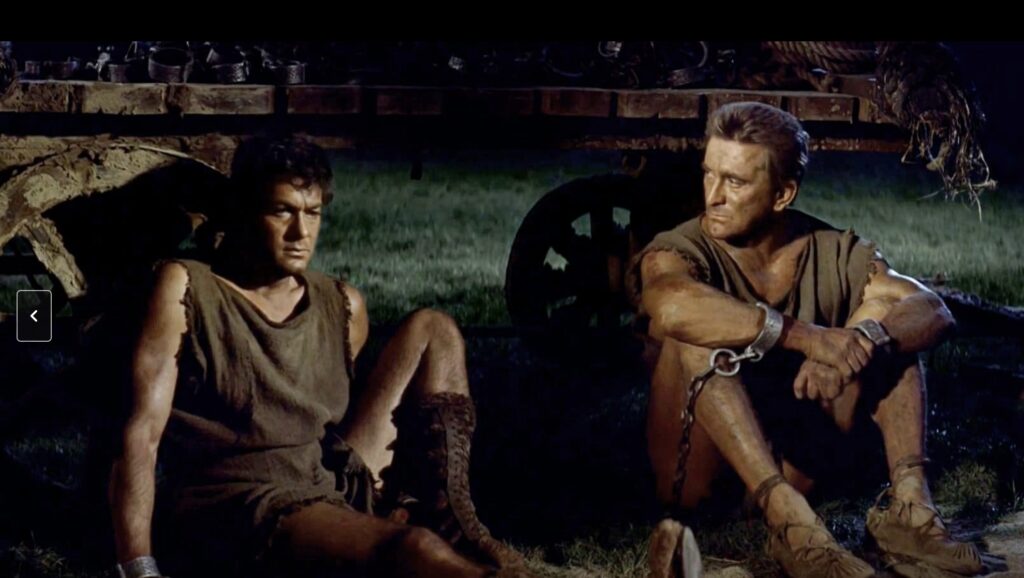
Between the volcano and the monster-infected sea cliffs, Gaius began to suspect Spartacus’ battlefield choices were determined less by tactics and more by a serious adrenaline addiction.
PHIDIAS: Although still, if we are discussing defensive positions, he could easily be surrounded and starved out if he was caught on a mountain.
VITRUVIUS: Ok, we are not discussing defensive positions. We are discussing offensive positions, specifically this wall that the mortals just excavated in Calabria.
PHIDIAS: How did they escape from Vesuvius to Calabria?
SPARTACUS: I am Spartacus!
PHIDIAS: Are you suggesting your sheer magnetism allowed your forces to escape?
VITRUVIUS: That’s not what happened! They used vines to climb down the mountain and attack the Roman forces from the rear. Which I admit as I say it, sounds incredibly badass. But the point is, Spartacus and his 70,000 followers made it down to Calabria, where the Roman army built a wall across the peninsula to entrap them. Which is the wall I have come to talk about.
PLINY: Did the wall hold them?
VITRUVIUS: I just told you an army of rebel gladiators rappelled down the side of a volcano so they could slaughter the Roman legions. No, a stupid wall didn’t hold them. They fought their way out through the wall, and made for the opposite coast. In fact, the mortals have found the spot where the wall was breached, along with a bunch of ancient weapons.
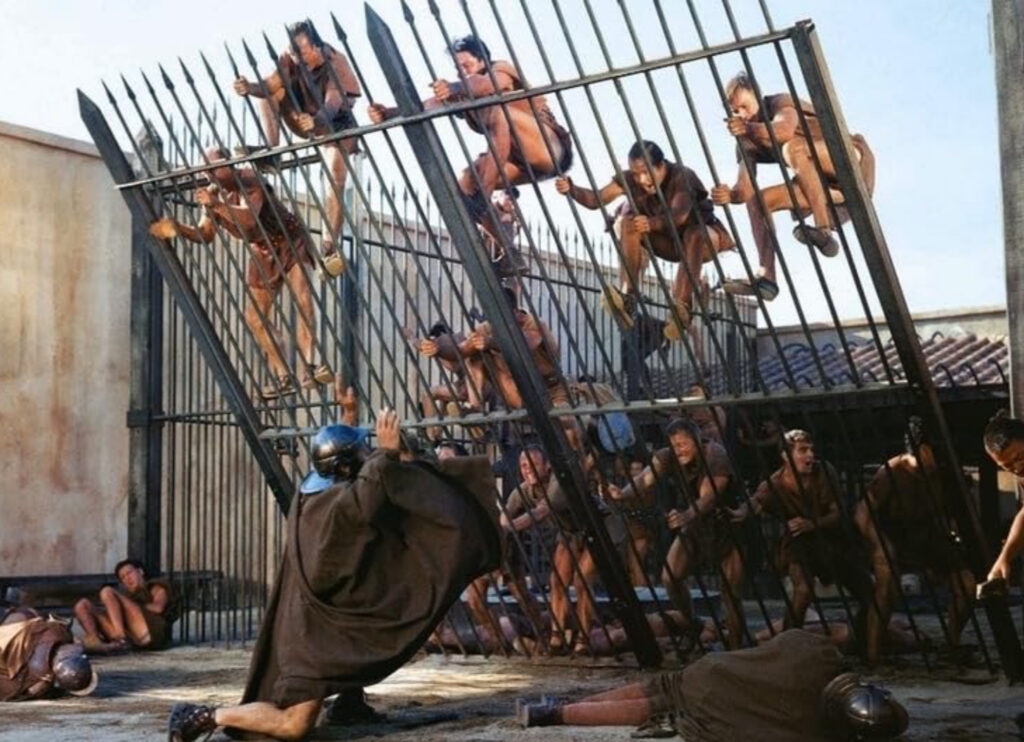
Not pictured: anything vaguely historic.
PHIDIAS: What a tale! I have recently heard of this invention called a “movie” that modern mortals watch to hear stories of epic adventures. This story should be made into one!
VITRUVIUS: Oh, there already is a movie about Spartacus. Although surprisingly, it covers nothing of what I just told you.
PHIDAS: (stunned blinking)
PLINY: Well, I presume with a hero like that the story must have a happy ending?
VITRUVIUS: No stories involving the Roman army have a happy ending. Eventually Spartacus and his men were captured and the Roman general Cassius crucified them all. 6,000 bodies stretching over 100 miles of the road into Rome. For some reason the movie includes that. Also some uncomfortable homoerotic banter about snails and oysters.
PLINY: (stunned blinking)
SPARTACUS: (sadly) I am Spartacus.
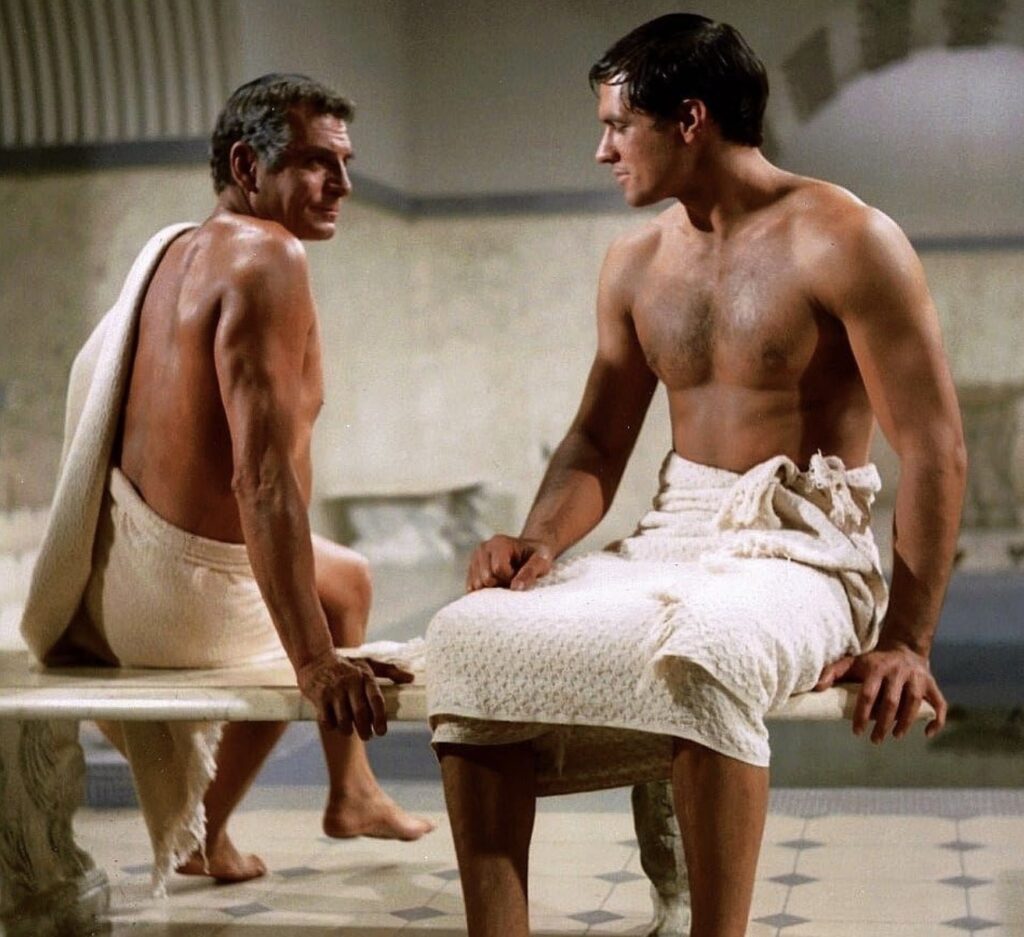
This is way more interesting than gladiators escaping from a volcano. Amiright?
VITRUVIUS: Right. Well, this talk has been a bit of a disaster. I was going to talk about how amazing Roman military engineering was, but now the energy in this grove of shades feels weird. So forget it.
PHIDIAS: This is why I don’t like inviting Romans to give speeches. The rest of you, please join us next week when our guest lecture will be…(checks schedule) Trajan’s chief architect Apollodorus of Damascus giving an update on his copyright infringement suit against Thomas Jefferson. Seriously?
Share on Instagram, or really wherever you want.


